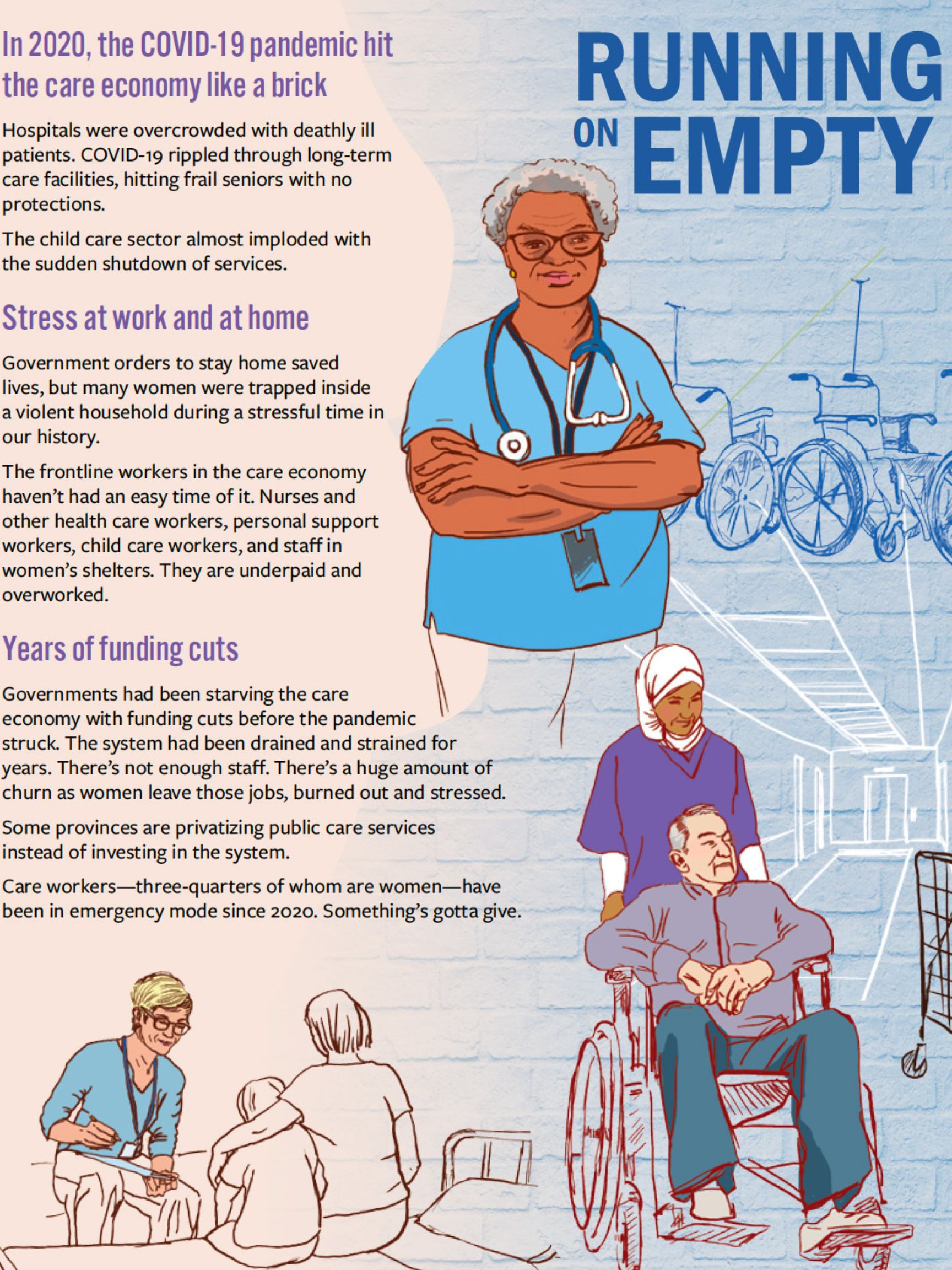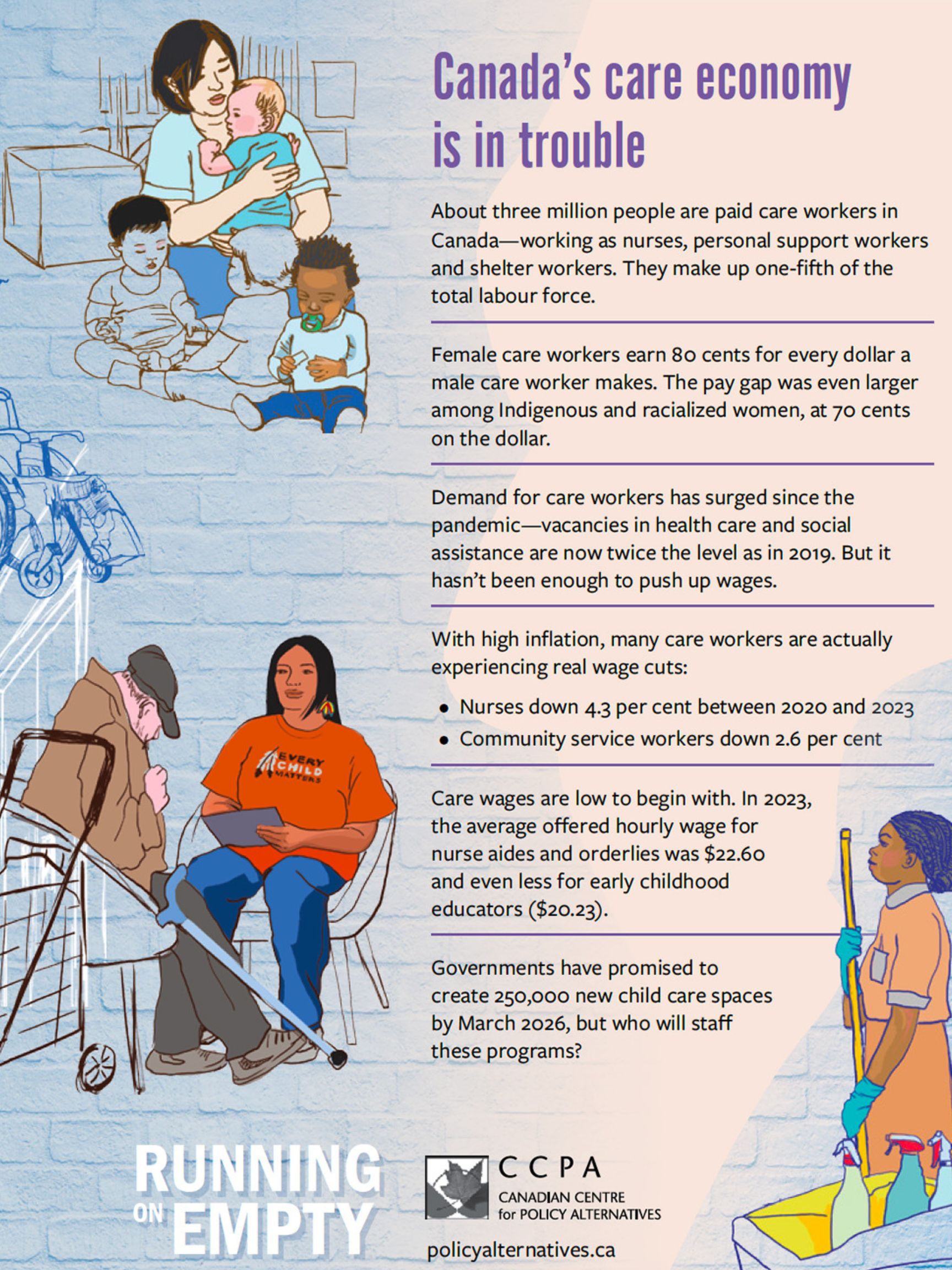Our content is fiercely open source and we never paywall our website. The support of our community makes this possible.
Make a donation of $35 or more and receive The Monitor magazine for one full year and a donation receipt for the full amount of your gift.
In March 2020, when the COVID-19 pandemic hit home, the walls rapidly closed in—especially for women.
Some lost their job due to the economic shutdown at the start of the pandemic.
Some figured out how to work from home (often with little ones underfoot or home schooling).
Some coped with having to risk their health and safety by reporting to work in hospitals, grocery stores, and other front-line “essential” jobs.
Some decided the stress of work was too much and either quit or retired.
For a brief moment, they were lauded as sheroes. And then, as the pandemic dragged on, showing no mercy, women faded into the background—doing invisible work for low pay and at high risk of getting sick as the economy gradually re-opened, federal government income supports dried up, and duty called.
CCPA Senior Researcher Katherine Scott was tracking women’s fate at home and in the workplace at the start of the pandemic, worrying that generations of women’s progress in the workplace was unravelling at breakneck speed.
Would women ever fully recover from the harsh realities of the pandemic?
This issue of the Monitor reveals the good, bad and the ugly. It tells the complicated story of women’s recovery from those early days of the pandemic.




